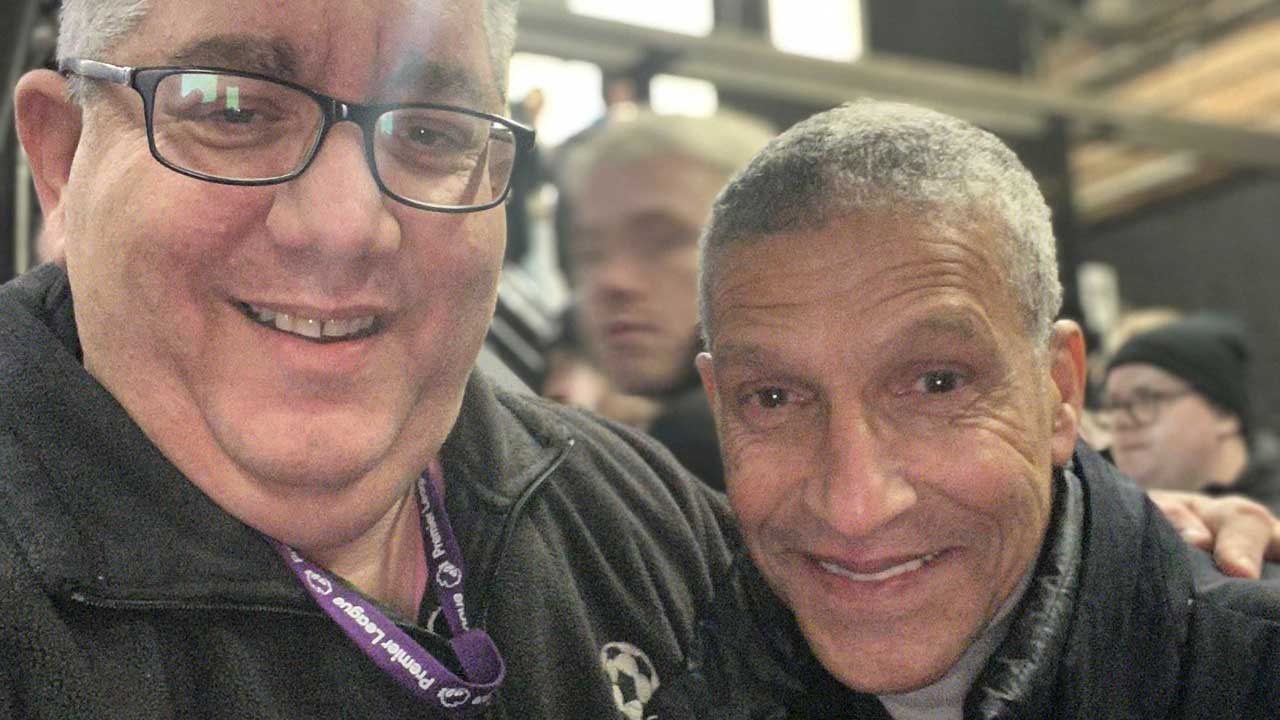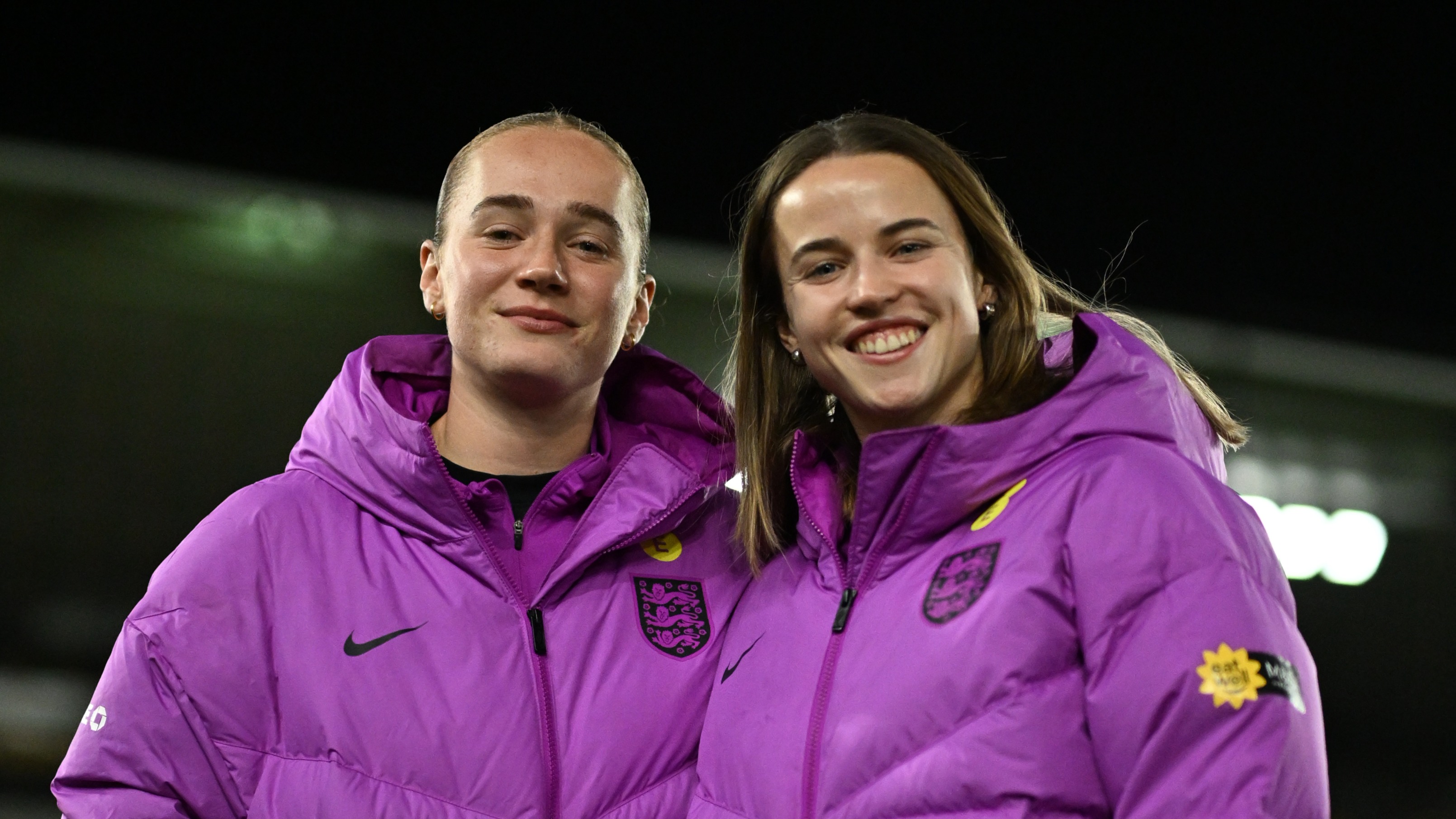Broadcaster and Hammers fan Ian ‘Moose’ Abrahams chats to former West Ham United defender and current Ghana manager Chris Hughton...
Ahead of his Ghana team kicking-off their 2026 FIFA World Cup qualifying campaign on Friday, I spoke to former West Ham United defender Chris Hughton about his experiences in football, how the game has changed and his role managing Mohammed Kudus and the Black Stars.
Chris was born a goal kick or two away from Upton Park in Forest Gate, staunch West Ham territory. In 1990, after an illustrious career with Spurs, Chris joined West Ham, initially on loan but then on a permanent basis. He ended up spending two seasons at Upton Park, helping the Hammers to win promotion from the second tier in 1991 under Billy Bonds’ management.
During his playing career, Chris won a couple of FA Cups and a UEFA Cup with Tottenham and promotions with both West Ham and Brentford. As a manager, Chris won the Championship with Newcastle and took Brighton into the Premier League for the first time in their history. Three times he was named LMA Championship Manager of the Year. I think you’ll agree that’s a fantastic CV, so when I chatted to Chris, I began by saying, surely he was right up there in the conversation for being the most successful Black player and manager in the game.
“That’s very nice of you to say, I have always been conscious of my colour, as a player and as a coach and the responsibility that I have in days gone by, particularly with what we saw with racism on the terraces,” Chris told me. “Within the game now it’s more hedged towards management and the upper echelons of our game. I’ve always been conscious of the role I have and I’ve always been prepared to speak about my experiences and what I would like for the future.”
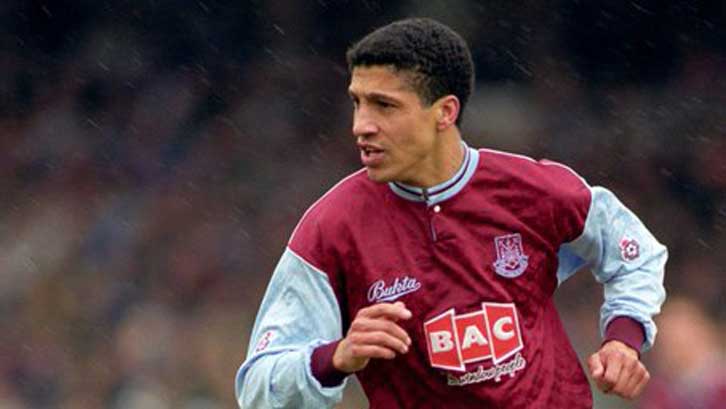
Suffering in silence
It’s hard to comprehend how tough it was for Chris in the 1970s, when racism was commonplace inside football grounds.
“It’s testament to how far the game has come.” Chris told me. “The players are not prepared to accept it in the game now. I mean, it’s still very difficult for me to comprehend how the game allowed the type of racist abuse you got on the touchline and in the stadiums. My brother Henry played in a team where they were a few Black players (at Leyton Orient), but I made my debut at Tottenham in 1979, and I was only the second Black player ever to play for Tottenham, and when I made my debut, I was the only Black player in the team. (Chris was joined later by the likes of Garth Crooks, John Chiedozie and Mitchell Thomas).
“Sometimes when I think back it is difficult to comprehend, but what you did do was almost suffer in silence. Now it is very much a diverse game and I think, when there are some racist incidents, generally you have a whole team network to support you. Back in my day, I can remember that a lot of stadiums were experiencing a lot of racial abuse, sometimes from big sections of the support, and you suffered it by yourself because you were the only one who was receiving that type of abuse, you were the only one that almost understood it, and being the only Black player in the team you took all of that on your own shoulders.
“Sometimes it’s hard to think back now and comprehend how you coped with that, and the coping mechanism is because firstly you are used to it, and secondly your mentality had to be that you’re better than that. You generally suffered by yourself.”
That was powerful stuff from Chris, having to suffer in silence, but what about on the pitch? I asked him if that was a safe haven from the abuse he received from the terraces?
“No, there were numerous times over that period, especially in the reserve team, and yes, even in the first team that I suffered racial abuse [from opposing players],” Chris explained, “I reacted to it, but I knew the boundaries, because you knew if you went too far you were going to get sent off.
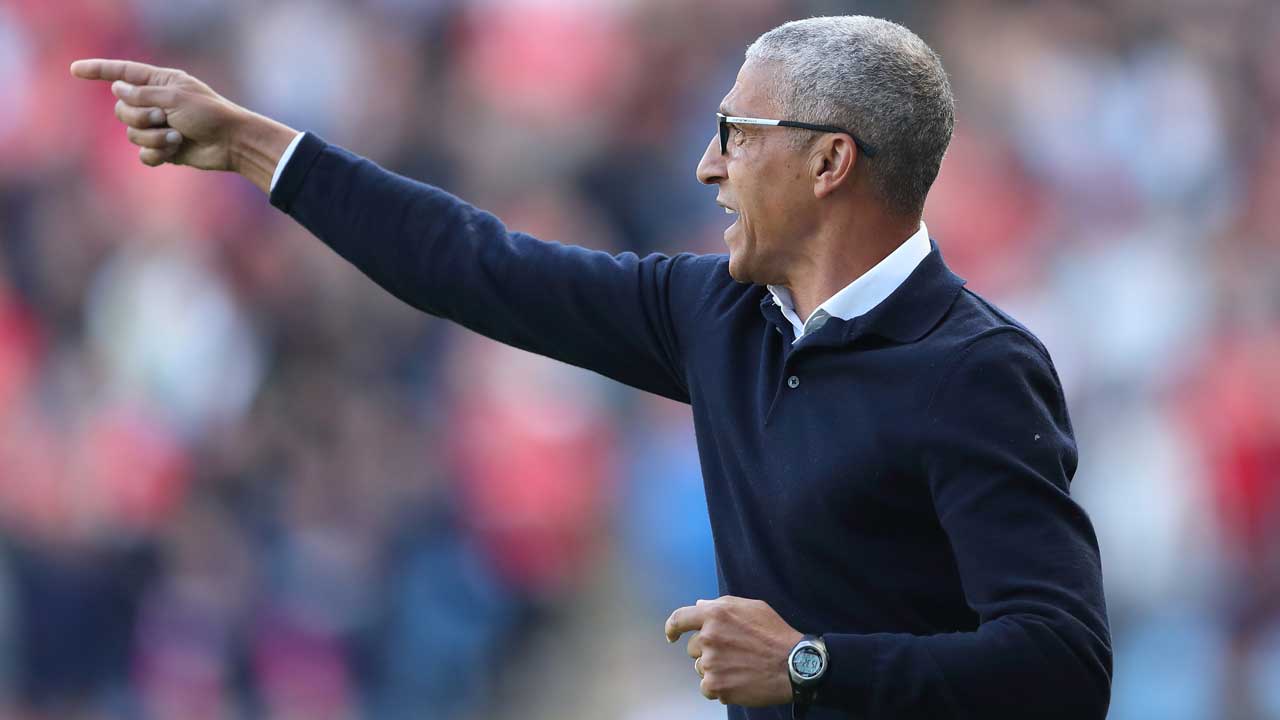
Taking big strides
Let me tell you, and I’ve never met anyone with a bad word to say about Chris, he is one of the nicest guys in the sport. So why did he think he received so much abuse?
“It was always from the section of the opposition support, obviously not from my own supporters who knew me,” he observed. “The opposition supporters didn’t know you, they just knew you were player and that you were Black.”
So, by the time he became a manager, did Chris believe that racism had more or less been eradicated?
“No, it hasn’t been, but the game is taking big strides,” he observed, hopefully. “Of course, if anybody would attempt to do it now, we know that there are cameras, we know that there are stewards, we know that they will be ejected out the ground, and banned for a period of time, so on that aspect, the game has moved forward really well, and the game is taking big strides.”
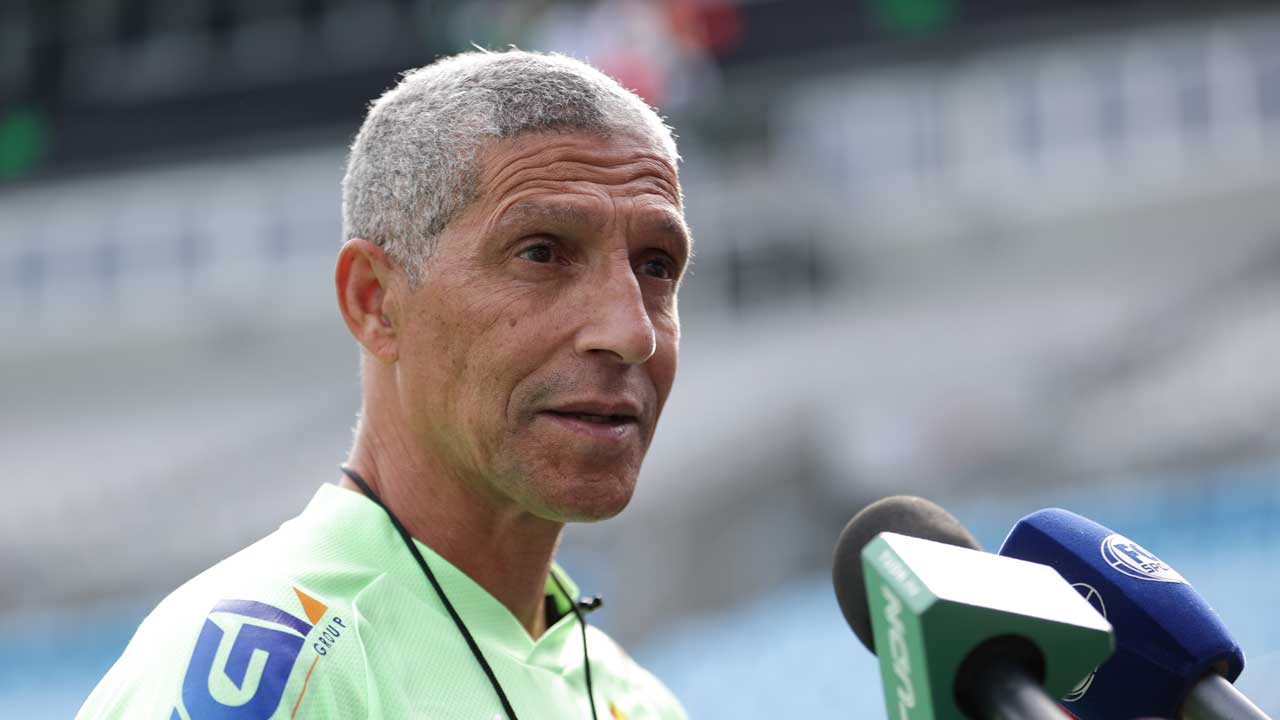
Black Star
Now Chris is preparing for a major tournament in January – the Africa Cup of Nations in Ivory Coast.
Chris’ mother was Irish, but his father came from Ghana and I’m sure he’d be proud his son is in charge of the Black Stars, one of Africa’s top national teams.
We’ll be following them as one of their main stars is Mohammed Kudus, so I asked Chris about the exciting young forward now playing for his old club.
“I think that Kudus will be good for David and David will definitely be good for him, and I hope in the end it’s very good for West Ham,” he told me. “What Mohammed is, is a talented player. I think what he has got in his game, and I think probably different managers will see it different ways, is that he is a player who can play in a few different positions. Predominately for us (Ghana), he is played either in that number ten role or on that right-hand side. Looking at his performances for West Ham, I think that’s the two positions he’s played at.
“His development will be depend on any other positions he could play in. Could he play as a number nine? I see him more as a ten or an inverted player on that right-hand side. He has really good ability and is strong. When you look at him he has strong legs, fairly muscular, so he is able to use his body, certainly in tight areas, to manoeuvre past players or get out of tight situations, and of course the asset he has got is he is a player who can score goals.”
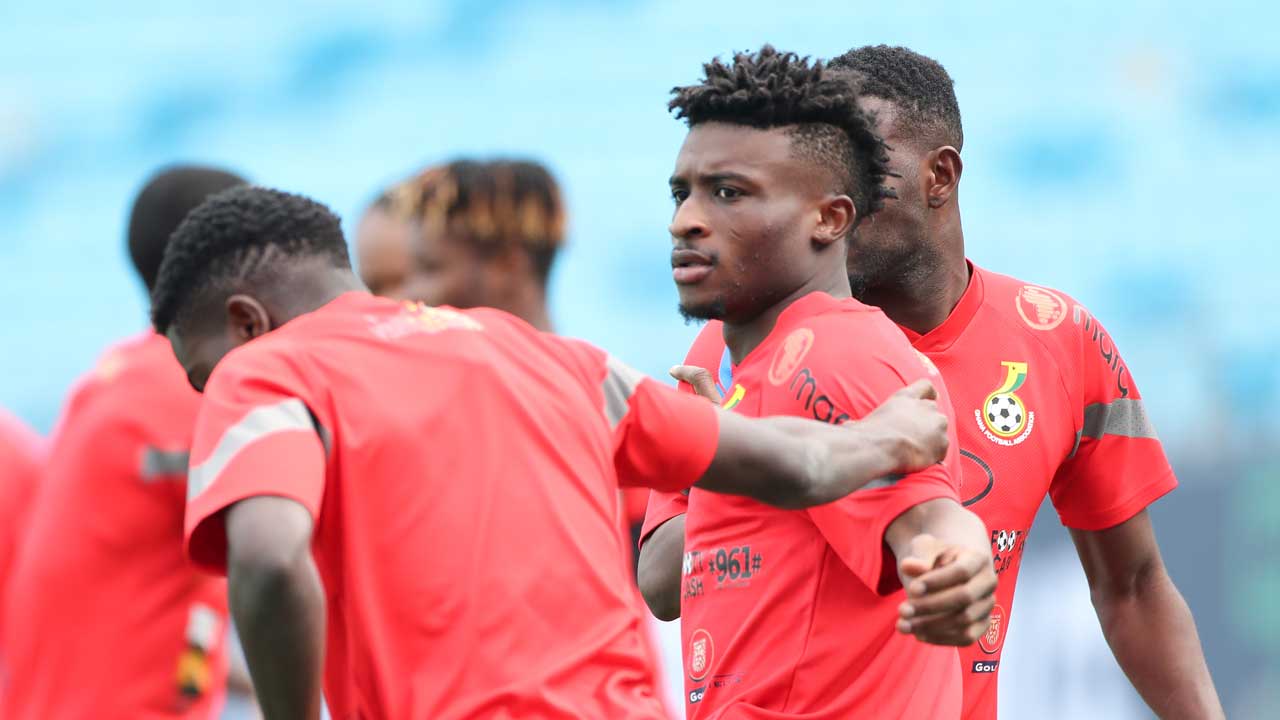
A great man
I am lucky, in my 30 plus years in journalism, I’ve become friendly with the likes of Chris Hughton. To be honest, if any of you spent five minutes in the man’s company, he’d be your friend too.
His career started in the dark days when racism was commonplace, with abuse and bananas being hurled at him and some of the sport’s most talented Black players, and it’s hard to envisage how tough that must of been.
It’s worth listening to people like Chris who, in his words, had to suffer in silence. In 2023, players thankfully no longer have to do that on the rare occasions they suffer such torment.
